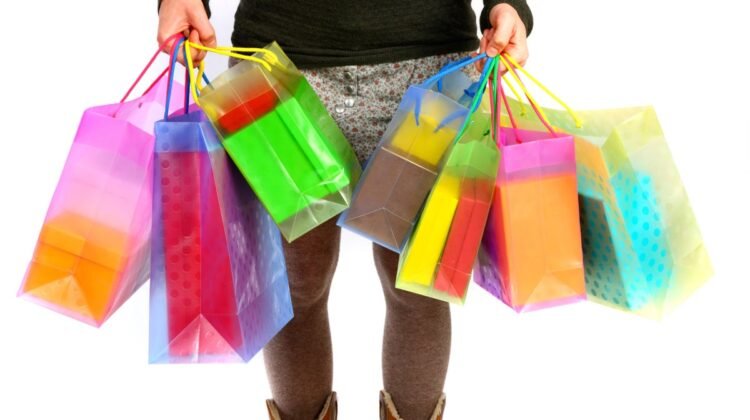
Shopping addiction: Signs you’re out of control
We’ve all gotten carried away adding too much stuff to our online shopping basket once in a while, or have chucked a few extra items in the trolley, telling ourselves we deserve a treat. But shopping, when it gets out of control, can become a devastating problem affecting much more than our bank balance.
Dr Catherine Carney, psychiatrist and addiction expert at rehab clinic Delamerecalls shopping addiction a “process or behavioural” addiction. “So it’s not substance related, but it’s a form of addiction that involves compulsive engagement in behaviours, even when it’s causing harm in your life. It is repeated actions or habits that, for some reason, for different people, give a psychological reward,” she explains.
Other behavioural addictions include gambling and excessive use of pornography, and shopping she says, is becoming increasingly recognised as a behavioural disorder. “With any behavioural addiction – and it’s the same with shopping – it’s about the loss of control over the behaviour and continuing to do it in spite of negative consequences,” she notes. “In the past you would refer to people as ‘shopaholics’ in quite an affectionate, humorous way, but it can actually cause massive fall out.”
Worried about your own relationship with shopping or that of someone you love? Dr Carney says signs there’s a problem include:
“Financial issues or debt.”
Ask yourself: Are you exceeding your means? Are you struggling to pay your mortgage, rent or bills because you’ve spent too much money on non-essential items? Are you buying things you can’t afford? Have you taken out loans to fund your shopping habit? Are you in an unmanageable amount of debt? These could all indicate an over-reliance on shopping.
“You’re spending an excessive amount of time thinking about or going shopping.”
If nipping to the shops is constantly on your mind, distracting you at work, when playing with your kids or seeing friends, it could be a sign you have a problem, especially if you are ditching time with or letting down loved ones to physically go shopping, or to order things online. “Irritability when you can’t do it,” can also be a sign, says Carney.
“You hide your purchases.”
Squirrelling away buys so your partner doesn’t see them, or so you can pretend to yourself you didn’t spend so much, is a red flag. If your shopping bags are noticed by a loved one and “you’re questioned on it, quite often, people can become quite defensive and irritable,” which is another warning sign, says Carney.
“You might get a euphoric high after shopping.”
Do you feel high after clicking the ‘buy now’ button? “Similar to other addictions, making a purchase can release endorphins [like the feel-good hormone] dopamine in the brain,” explains Carney. “So you get a momentary pleasure, a rush, similar to if you were running a long [distance] run or taking drugs.” What follows can often be a huge amount of “guilt or remorse after shopping”.
“You might shop impulsively.”
Keep on buying things randomly, on a whim? “People might shop very impulsively and go and buy things they weren’t intending to.”
Get a free fractional share worth up to £100.
Capital at risk.
Terms and conditions apply.
ADVERTISEMENT
Get a free fractional share worth up to £100.
Capital at risk.
Terms and conditions apply.
ADVERTISEMENT
“You’re using shopping to manage deeper underlying issues.”
“Whether it’s anxiety, depression, low self-esteem, low self-image, boredom, or some people have underlying trauma, which one person might use drugs to manage or distract from, somebody else might use shopping,” says Carney. She adds that “quite often, shopping addiction can go hand in hand with other addictions”. For instance, someone may seek help for excessive cocaine use, “and it’s only once they’ve been in treatment for a while, the cocaine has been taken away and they start using something else to manage those emotions. Parcels start arriving and excessive amounts of deliveries.
“You feel isolated.”
Carney says that in “extreme cases” people can end up feeling “quite isolated” as a result of their excessive shopping habit.
How to manage a shopping addiction
“The initial thing is recognising this behaviour is becoming a problem for whatever reason,” says Carney. From that point, you can seek professional help and start making changes.
Carney says it’s good “to create and stick to a budget. Look at alternatives to going shopping, whether it’s exercise or going out and building a social support system.”
She recommends trying mindfulness and looking into stress-management techniques if there are underlying issues. “Sometimes people do have underlying anxiety and depression, so in some cases, medication can be helpful. Go to your GP or a psychiatrist to diagnose underlying mental health problems.” She notes that quite often, people with bipolar disorder who have manic episodes can spend excessively during those periods.
“There are therapists and psychologists who specialise in behavioural addictions and CBT (cognitive behavioural therapy) can be really effective,” she adds.
Plus, there are lots of online support groups and forums like Debtors Anonymous you can join for additional help.
And for financial support, as well as help with budgeting, charities including StepChange, Citizen’s Advice and Gymnastics are on hand with free advice.







